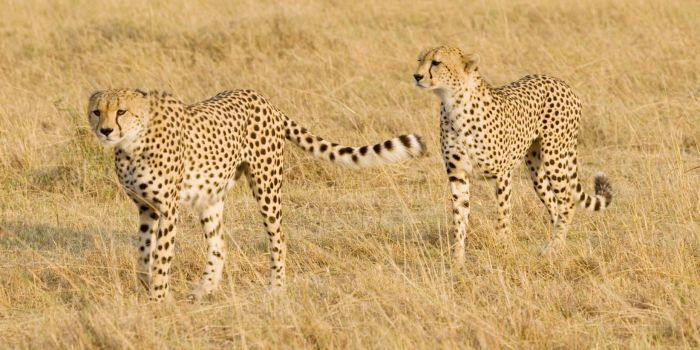Views: 3
Kenya is on the brink of sending cheetahs to India, following a pivotal visit by a six-member Kenyan government delegation last week.
The delegation, focused on appraising India’s ambitious Project Cheetah, also presented a draft Memorandum of Understanding (MoU) to the National Tiger Conservation Authority (NTCA). This MoU outlines key collaborations in wildlife conservation, capacity building, and knowledge sharing.
The MoU, detailed in a report by the India Express, aims to establish a comprehensive understanding between Kenya and India.
Among the proposed collaborative efforts, Kenya seeks India’s assistance in acquiring equipment for forest rangers to enhance field patrolling and wildlife conservation. This initiative highlights the broader goal of strengthening ties between the two nations on wildlife conservation.
However, when probed about the sourcing of cheetahs from Kenya for phase-II of Project Cheetah, NTCA Member Secretary Gobind Sagar Bharadwaj clarified, “There was no concrete outcome on the issue of cheetah sourcing during this meeting. The steering committee on Project Cheetah will take the final call on the issue after deliberations and due diligence are carried out.”
India has been considering the option of sourcing cheetahs from Kenya for the next phase of Project Cheetah, given Kenya’s similar tropical climate which may facilitate better adaptation of the animals. India’s plan under Project Cheetah involves the introduction of eight to fourteen cheetahs annually over five years, subject to availability.

CANVA
The formalisation of the MoU will proceed through the Ministry of External Affairs (MEA). “The MoU would be forwarded to our high commission in Nairobi and we would share our inputs through the MEA. If there is any agreement on sourcing cheetahs from Kenya, that too, would be made part of the broad and over-arching MoU,” a source familiar with the developments told Indian Express.
During their three-day visit, the Kenyan delegation held a meeting in Delhi with NTCA officials and visited Kuno National Park and Gandhi Sagar Wildlife Sanctuary in Madhya Pradesh. This visit was a follow-up to India’s expressed interest in sourcing cheetahs from Kenya during President William Ruto’s visit in December last year.
Previously, India’s Environment Ministry had written to Kenya expressing a desire to visit and learn from their wildlife management practices. However, the Kenyan government proposed to visit India first. During their visit to Kuno National Park, the Kenyan delegation engaged with field staff who presented the efforts made in the cheetah reintroduction programme.
“They made queries on our field management practices and we discussed the efforts we have taken over the last 1.5 years since the cheetahs were reintroduced in India,” stated Uttam Kumar Sharma, field director of Kuno National Park.
At Gandhi Sagar Sanctuary, the Kenyan officials were briefed on fencing and prey augmentation preparations for the sanctuary, set to welcome cheetahs later this year. The Kenyan delegation is expected to share a report on their appraisal of India’s cheetah reintroduction project.
In September 2022, India made headlines when eight radio-collared cheetahs were flown 5,000 miles from Namibia to Kuno National Park. This marked the final phase of the 13-year-long Project Cheetah, which aims to reintroduce cheetahs to India’s grasslands, 70 years after they were hunted to extinction. The project’s launch coincided with Prime Minister Narendra Modi’s 72nd birthday, who celebrated by releasing the first cheetah into the park.
Despite the project’s promising start, it has faced significant challenges. Since March, nine out of the 20 cheetahs, including three cubs, have died from various causes. These setbacks, attributed to health complications and management issues, have prompted heightened vigilance and scrutiny of the high-profile conservation project.


